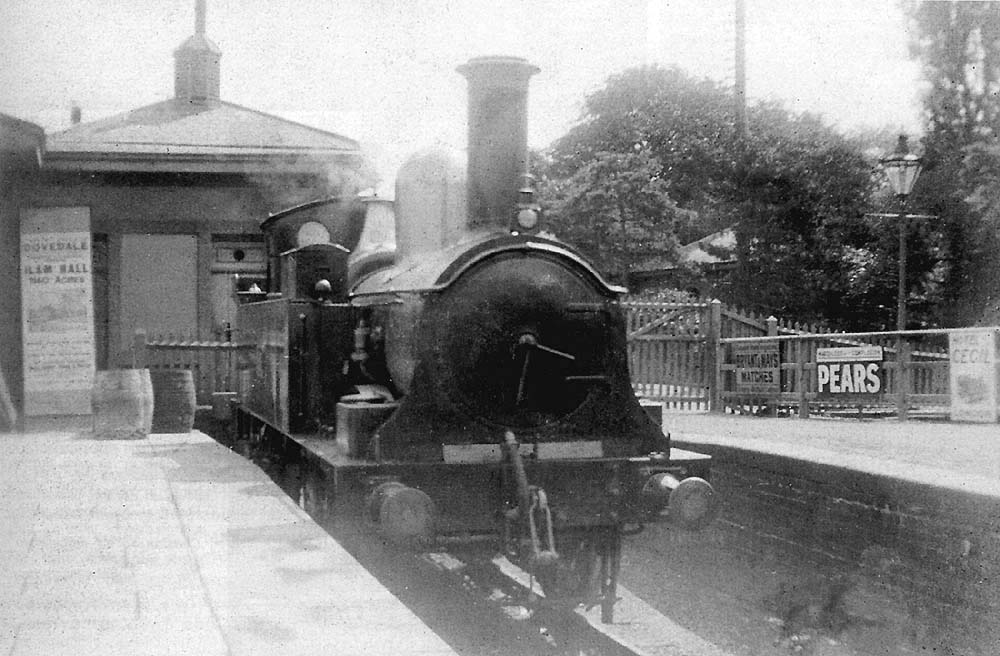 |
|
GWR Route: Banbury to Wolverhampton
Leamington Spa Station: gwrls840
 |
Another GWR '517' class 0-4-2T locomotive, thought to be No
1165, stands in the down bay against the stops at the end of the station
building on 11th October 1910. The 517 Class were small 0-4-2T tank engines
designed by George Armstrong for local passenger work on the Great Western
Railway. They were built at Wolverhampton Works and were outshopped between
1868 and 1885. They were built in thirteen lots commencing with No 517 to No
528 and ending with No 1477 to No 1488 in 1884 and 1885. The class was far from
uniform and encompassed three different wheelbases, saddle and side tanks, and
various boilers to name just a few variations. Leamington had a long
association with the class and one locomotive No 1157 was withdrawn from the
shed in November 1935. Three survived until after the Second World War with the
last No 1159 being withdrawn in August 1947 from Oxford shed. Mike Flemming
writes when correcting the initial caption, 'The photo shows an interesting
example, with smokebox wing plates and with the toolboxes forward, in front of
the fillers at the rear end of the tanks. The variability of this class is
remarkable'.
The initial locomotives were rebuilt from saddle tanks whilst
the later class members were built as side tanks from the outset. As stated
previously, the class had various bunker and cab combinations and after their
last rebuilding, the locomotives became, with their enclosed cabs and large
bunkers, the progenitors of Collett's 48xx class. The independence of the
brothers Armstrong is aptly symbolised by the fact that Joseph at Swindon
preferred the 2-4-0T wheel arrangement (the 455 Class 'Metro' Tanks) to the
0-4-2; George, on the other hand, did not build any 2-4-0Ts at Wolverhampton.
In the 19th century the 517s were principally Northern Division engines, and
when new the locomotives worked the Birmingham and Wolverhampton suburban
traffic. Under Churchward the situation changed: about half of the class was
fitted for autotrain working, and these engines were regularly maintained and
moved around the system where needed; while the other, unconverted engines were
demoted and became little more than shunters. Nevertheless as late as the 1920s
the class was found in almost all parts of the GWR system. Most of the class
ran between a million and a million and a half miles, No 1163 holding the
record at 1,652,661. None of the 517s was preserved, the last survivor No 848
being scrapped in 1945 after 70 years of service. The GWR 3571 class were very
closely related, its prototype being a minor rebuild of 517 class No 1477
carried out in 1895 with a further ten new locomotives being built over the
next two years.
 back back

|
